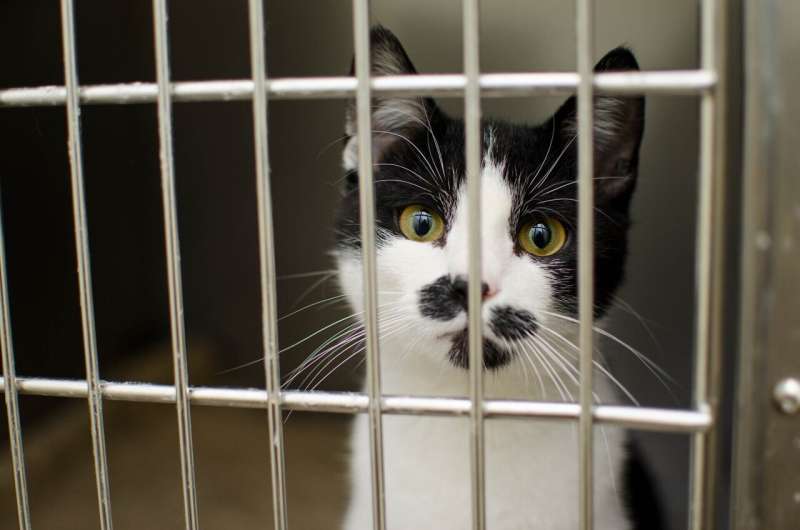This article has been reviewed according to Science X's editorial process and policies. Editors have highlighted the following attributes while ensuring the content's credibility:
fact-checked
peer-reviewed publication
trusted source
proofread
Policymakers should consider animal welfare in decisions, research suggests

Incorporating animal welfare into policymaking may improve policy and practice, according to Rutgers research.
The article, published in Science, notes that animal welfare rarely is considered during policymaking, explains why current tools make it difficult to incorporate the well-being of animals into public policy and identifies methods for remedying these issues.
"Animal welfare is often ignored in policymaking, despite its relevance across many domains ranging from food systems to biomedical research to climate policy," said Mark Budolfson, a faculty member of the Center for Population-Level Bioethics at the Rutgers Institute for Health, Health Care Policy and Aging Research and co-author of the study. "Part of the reason animal welfare is ignored is that policymakers currently lack established methods for integrating animal welfare into decision-making."
According to the researchers, there are well-developed tools for incorporating human welfare into policy analysis, but comparable tools for incorporating animal welfare are in their earliest stages of development. For example, no-kill animal shelters help offset public discomfort with euthanizing unwanted animals. A policy question might be: Should these animal shelters be publicly subsidized to avoid having to euthanize pets if those subsidies diverted resources from other human interests?
New tools, such as those presented by study authors, may help policymakers assess the welfare impacts of a policy like this on humans and animals on a common scale.
"It is commonplace for decision makers to weigh the costs and benefits of different policies. We describe emerging methods that allow animal welfare impacts to be included in those calculations," said Bob Fischer, co-author of the study and an associate professor in the Department of Philosophy at Texas State University.
Authors of the study suggested conducing interdisciplinary research to develop and refine methods for quantifying interspecies welfare; utilizing measurable correlations between animals and humans; and ensuring animal welfare is included in policy debates.
"There are so many areas where animal welfare matters, such as when governments aim to improve farm productivity while reducing land use and greenhouse gas emissions," said Budolfson, a faculty member of the Department of Environmental and Occupational Health at the Rutgers School of Public Health who is also affiliated with the Population Well-being Initiative at the University of Texas at Austin.
"Unfortunately, some of the most straightforward ways of doing this have negative implications for animal welfare, so policymakers should ask 'When, if ever, is it better to increase environmental sustainability if it reduces animal welfare?'"
"The bottom line is that it's a mistake to ignore the effect of our public policies on wild and domestic animals," said Noah Scovronick, co-author of the study and a faculty member at Rollins School of Public Health at Emory University. "Our decisions affect other species, and in turn other species affect us, whether it's through diseases that can be transmitted back and forth, through the productivity of our food supply, or any of many other possible examples."
More information: Mark Budolfson, Animal welfare: Methods to improve policy and practice, Science (2023). DOI: 10.1126/science.adi0121. www.science.org/doi/10.1126/science.adi0121
Journal information: Science
Provided by Rutgers University





















